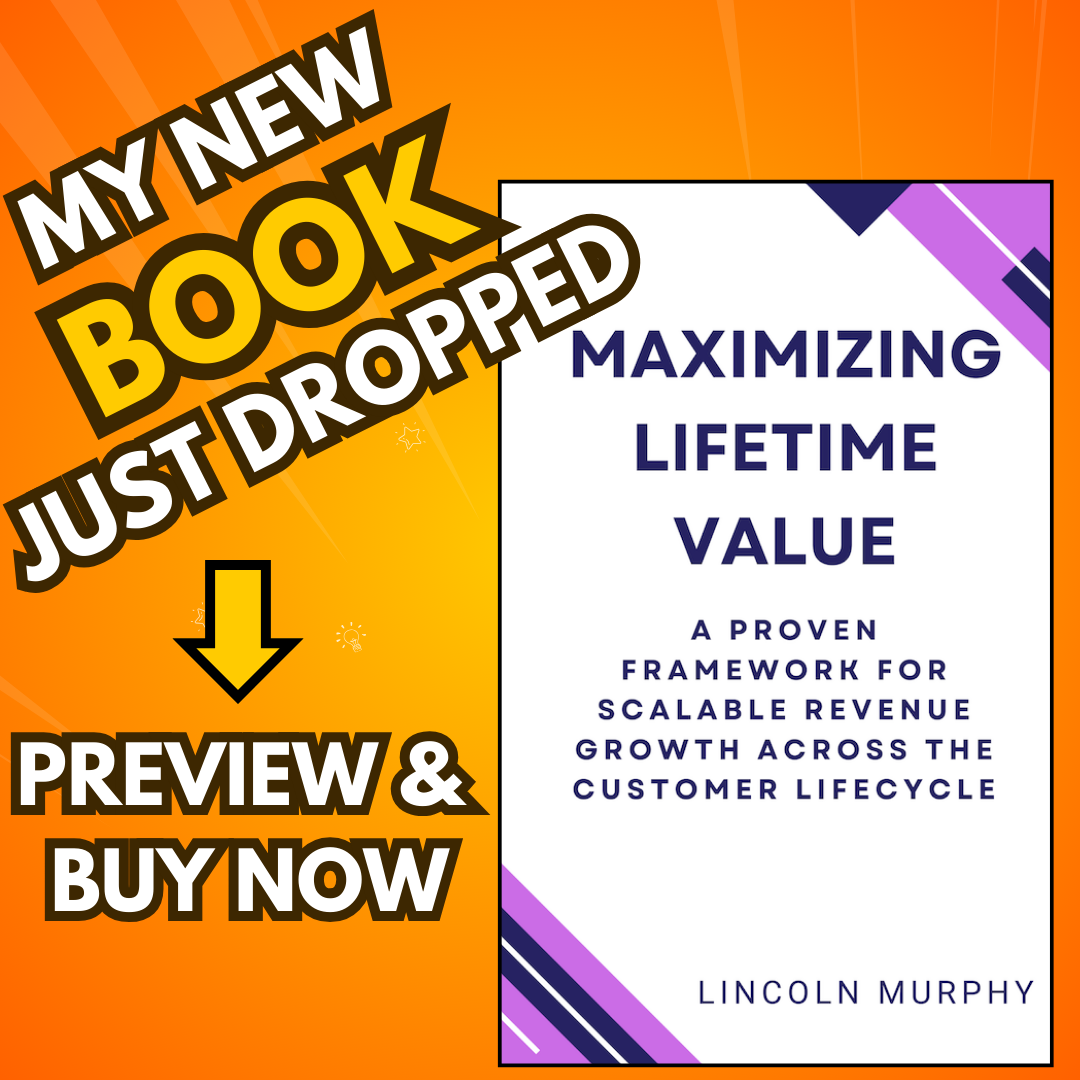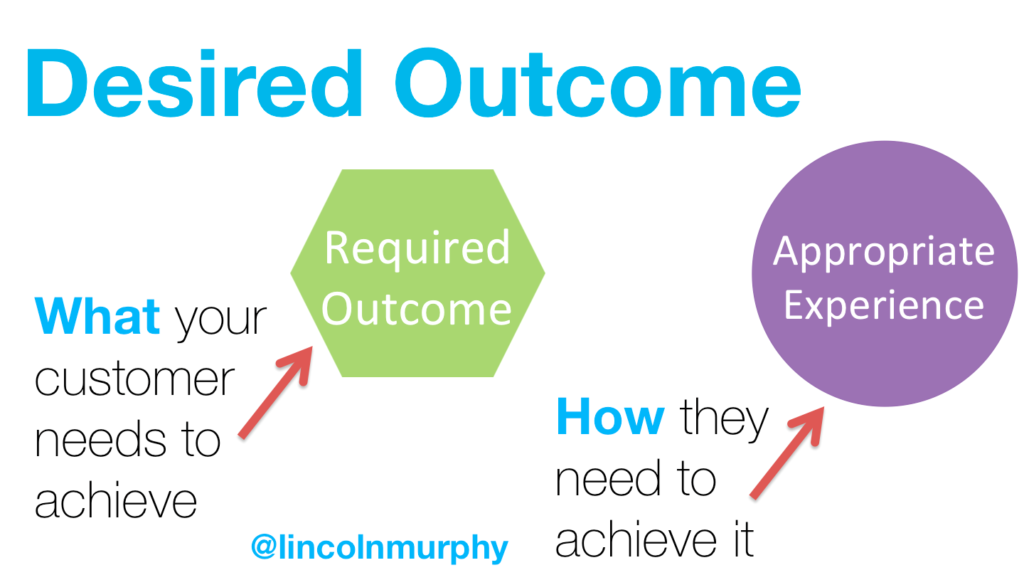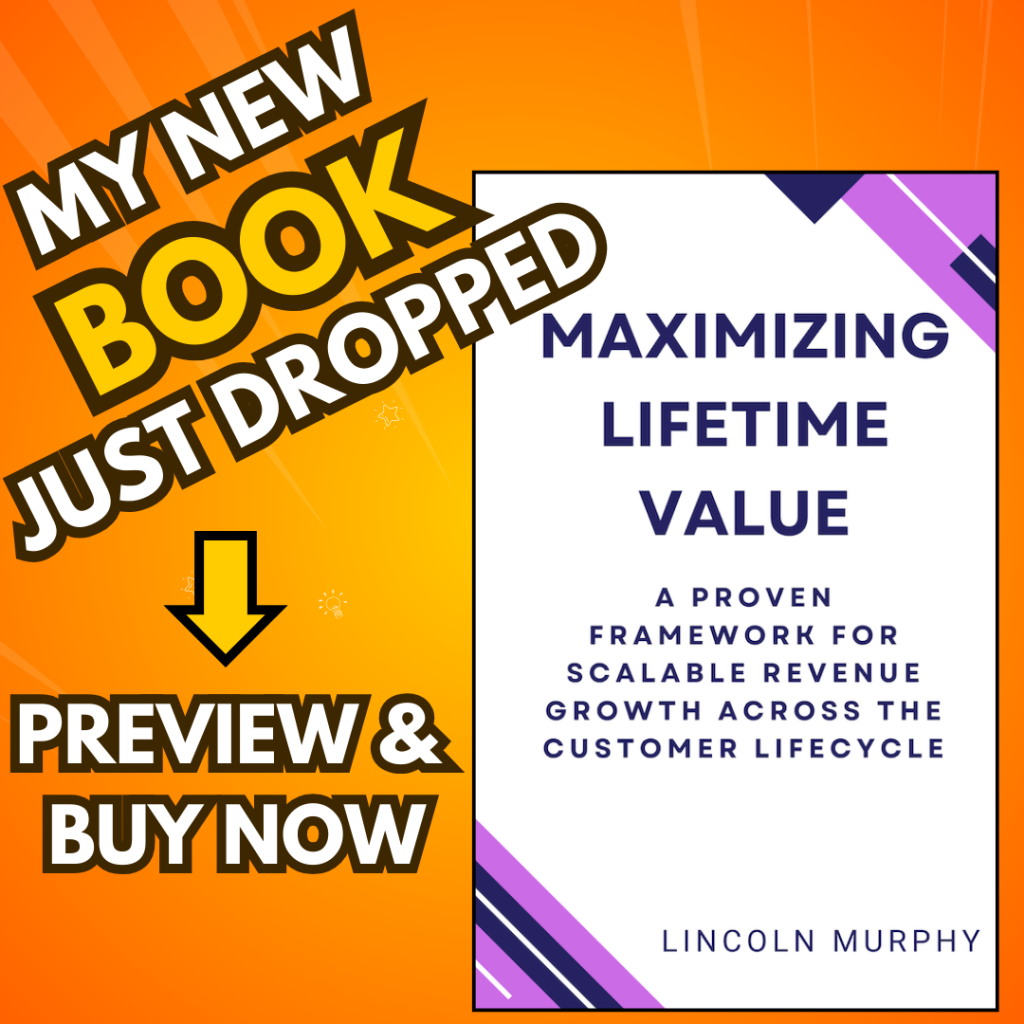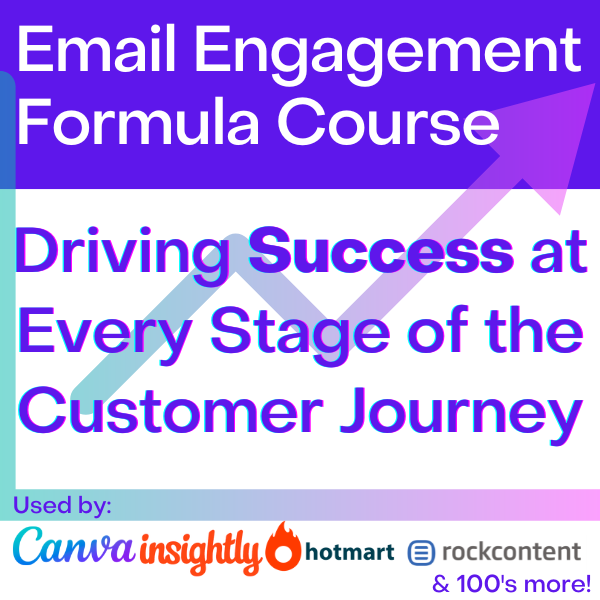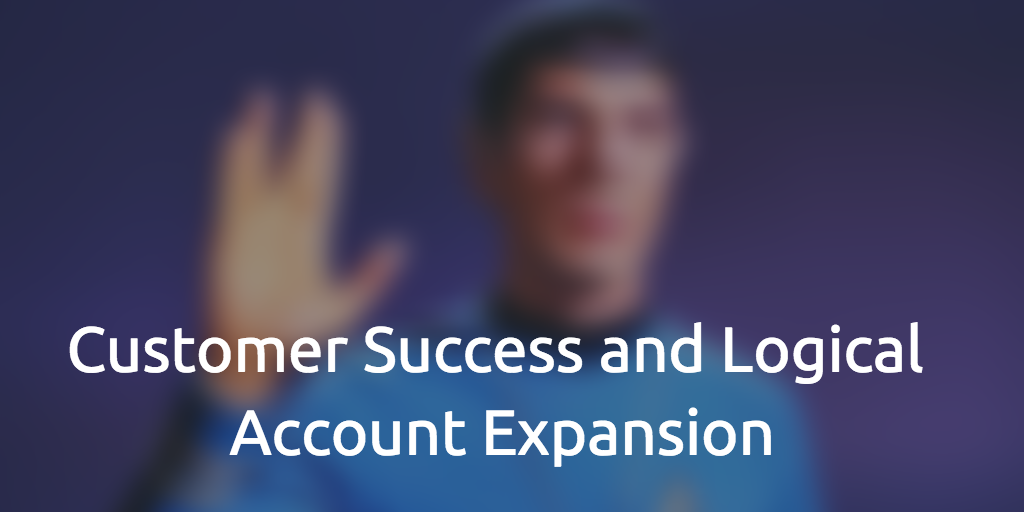 Customer Success is a powerful growth driver.
Customer Success is a powerful growth driver.
Sure, in the early days when you’re putting out the fires of churn, Customer Success seems less like a growth driver and more like a stop shrinking driver.
But once you move past churn busting – or if you avoid that altogether by being smart about customer acquisition in the first place – Customer Success starts to come into its own as a true driver of growth.
One of the ways Customer Success drives growth is through account expansion or getting existing customers to pay you more over time.
When you can grow revenue from your existing customer base, you could essentially turn off new customer acquisition and not just stay at the same level of revenue, but continue to grow.
Sure, it’s probably a good idea to continue to acquire net new customers, but the impact of account expansion to both the bottom line of a company as well as the valuation (something very important when raising money, going public, or being acquired) is potentially transformative.
But for account expansion – upsells, cross-sells, add-ons, etc. – to be a consistent and long-term driver of growth, it cannot be arbitrary or expected to occur organically.
Account expansion must be orchestrated, and that starts with applying logic to the process. Let’s explore…
Forcing the Issue
I was talking to a good friend of mine that runs Customer Success Management for a startup in San Francisco and she said they’d separated the account expansion function from the regular Customer Success Manager (CSM) function.
She said the catalyst for this was that her CSMs didn’t like to do the constant hard sell that was required to hit the expansion revenue quota they’d set.
She said trying to hit their numbers often interfered with focusing on helping the customer achieve their Desired Outcome.
So she said they transitioned one of their sales guys who “loves this stuff” to handle the upsells, and while she’s confident he’ll hit his short-term number, she worries about how that might affect the long-term health of the customer.
That’s a valid concern.
Customer Success is Required
Before we go any further, I have to say that while account expansion is one of the awesome ways Customer Success can have a positive financial impact on your business, you can’t just do Customer Success to try to get the upsell.
Rather, to “get the upsell” on a repeatable, predictable, and consistent basis, you must first and always focus on helping the customer achieve their Desired Outcome, which is the definition of Customer Success.
If you can keep that in mind, everything else I say here will be framed properly.If you fail to understand that key concept – that Customer Success is required for account expansion – then you’ll fall into the trap that many companies are falling into; trying to force expansion without pegging it to success.
The Dedicated Customer Expansion Team Trend
There is a current trend for companies to separate the Account Expansion (add-on sales, upsells, cross-sells, etc.) function for some customer segments.
In fact, the best companies are operationalizing expansion across all customer segments by leveraging technology for the low-revenue customers and dedicated personnel for the high-revenue segments.
So it’s not unusual (it’s also not really common, yet), but let’s tackle the part that she’s rightly concerned by; the impact of expansion on long-term customer health.
Incentives drive behavior, and when you’re given the mandate to increase revenue from the current customer base – and provided incentives for that outcome – without other checks in place, you may just reach that goal… collateral damage be damned.
Incentives Don’t Drive Behavior, Leaders Do
My friend said her CSMs were trying to make the sale during their Quarterly Business Reviews with customers, which was proving to be difficult for the CSM and quite off-putting to the customers.
And outside of QBRs, when they should be focused on guiding the customer to their next success milestone, she said the CSMs were instead trying to sell the customer on an add-on they just didn’t need.
She even had customers actively calling her and the other executives to complain they were being sold things they didn’t need and it was like her company didn’t understand them (the customer) at all.
Because the Customer Success org had to hit their number, she really couldn’t afford to stop forward momentum, so she brought in the sales muscle to make it happen.
So for her – and you if you’re truly focused on Customer Success – I recommend that you implement a post-expansion review on their Success Vector (my improved, forward-looking Customer Health Score alternative) or Customer Satisfaction (90-days is a good timeframe) and to either pay out a bonus or the full commission to the expansion person if the customer Success Vector is as good or better than it was pre-expansion.
Or, if the customer Success Vector/c-sat is lower that in was pre-expansion, since that likely indicates some strong-arm or other less-than-positive tactics were used to get the expansion win or expectations were simply mismanaged, you need to not pay the full commission or perform a clawback to take away some of the expansion person’s commission.
Hard Selling or Hardly Selling?
Now, the other part my friend said was her CSMs didn’t like the “hard sell” required to get the expansion, would avoid selling so as to avoid making the customer – and themselves – uncomfortable, and would miss quota.
That’s because they were trying to sell something the customer didn’t need when they didn’t need it.
Only a sociopath would actually enjoy that type of selling.
No CSM with actual empathy for other humans is going to enjoy – or be anything near effective – in that situation. A quota in that situation is a non-starter.
But, if you and your CSMs – and everyone in your company – understands the customer’s Desired Outcome and believes that your products are the way to help them achieve that, then getting the customer to consume more, buy an add-on, or otherwise expand their use is actually what’s necessary to continue on the path to success.
Right Message + Right Time = Win
By forcing the CSM to sell something “out of cycle” – that is, when it’s not actually needed or wanted by the customer – you not only hurt the CSM, you hurt the customer; their trust and overall faith in you goes down because you either don’t care about their actual progress and success with your product or you’re clueless… maybe both.
I suspect this is one of the reasons so many people say Expansion Sales and Customer Success Managers should be separate (even if still under the Customer Org); CSMs are trusted advisors to the customers and Expansion Sales are sociopathic monsters with a mission to hit quota by any means necessary.
But it doesn’t have to be this way. In fact, if you truly believe that somehow selling to your customers hurts trust… you’re doing it wrong!
The keyword is “Logical”
When it comes to Expansion sales – whether done by a dedicated Expansion Sales person or your trusted CSM – I told her the keyword is “logical” and that most of the time that simple word is overlooked or ignored.
So, if you’d like to take advantage of expansion opportunities with your customer in a way that builds deeper trust, ensures the customer stays on or accelerates their path to success, and is truly the proverbial “win-win” you must clearly understand what the Desired Outcome is (for the customer, not you!), and then operationalize around the milestones required to achieve that outcome. Simple. Not easy, but simple.
Some of those milestones will have a logical upsell or add-on associated with them, and creating a system that allows a CSM or dedicated Expansion resource to surface an upsell ask with the customer at the right time – based on that success milestone they just achieved – ensures the customer is in a prime position to see the offer as the logical next step, and keeps the CSM making the upsell ask from having to overtly sell in order to convince the customer to buy.
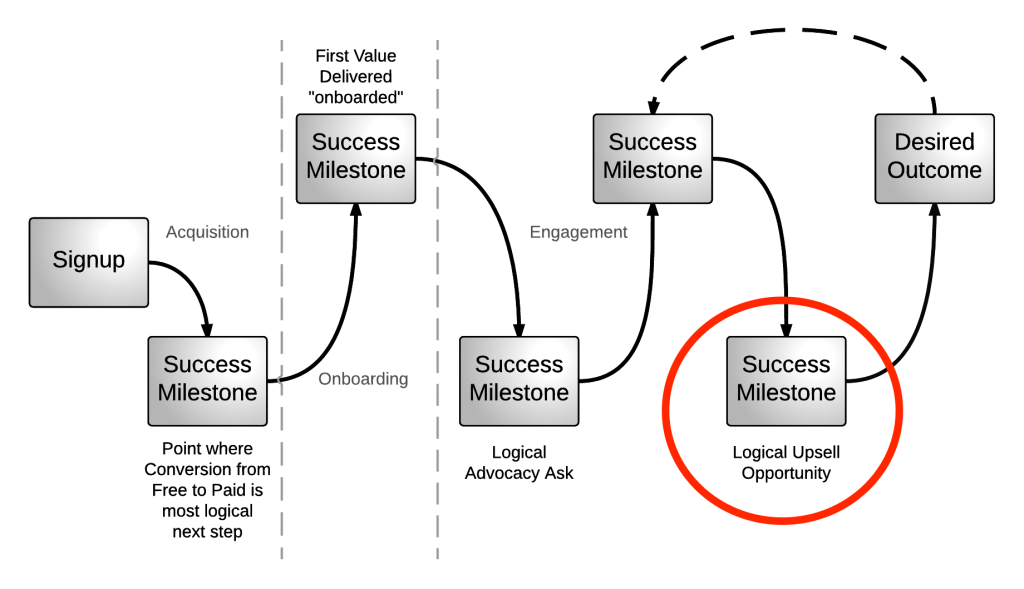
Again, assuming the CSM is bought into the idea that the add-on or additional seats are actually the right things for the customer (based on their Desired Outcome and where they are on the path to success), the CSM won’t be “selling” but will simply have a matter-of-fact conversation with the customer.
A Way With Words
And when I say CSMs don’t have to sell, let me be clear; they need to bring it up with the customer. And having a system in place that tells them when they should bring it up ensures it actually gets done.
But in terms of “selling,” the CSM would literally have to say something like “You’re really on your way to achieving [your Desired Outcome]. Most of our customers that [reach this success milestone] buy [this add-on]…” and get the customer to agree to add it to their account.
If the customer wants to negotiate, the CSM can actually invoke the “I’m not a salesperson” gimmick and say “oh, I’m not a salesperson; if you’d like to negotiate the price, I can bring [salesperson] into the conversation.”
60% of the time, it works every time.
I told my friend that her CSMs were trying to sell stuff the customers didn’t want or need when they didn’t want or need it, so the only way to sell in that scenario is to strong-arm or otherwise try to convince; something most CSMs won’t want to (and shouldn’t) do.
A Dedicated Account Expansion Resource or Nah?
Traditional Account Management doesn’t work, but the functions of Account Management – Renewal and Expansion – are still required; they just need to report to, roll-up to, or otherwise fit within Customer Success Management.
My opinion is that separating expansion and other customer success activities should be done for one of two reasons:
- When the expansion sale requires negotiation or is otherwise too complex and is a distraction for the CSM.
- When you can afford to have a dedicated expansion resource even if the complexity isn’t there.
Don’t separate for trust issues or to hit your numbers by any means necessary.
You want your CSMs focused on helping the customer achieve their Desired Outcome and while having the add-on will help them reach their goals if the process of getting the add-on added to their account is distracting or time-consuming, then optimize that process.
No matter what, the CSM must manage expectations with the customer, let them know from the start that at various times add-ons or other expansion opportunities will occur and when they do, the expansion resource will be brought into the conversation. That way there are no surprises and everything makes logical sense.
Always keep in mind what Customer Success actually is and orchestrate account expansion around that. It’ll transform your CSMs effectiveness (and happiness) and transform your business.
Be Logical.
